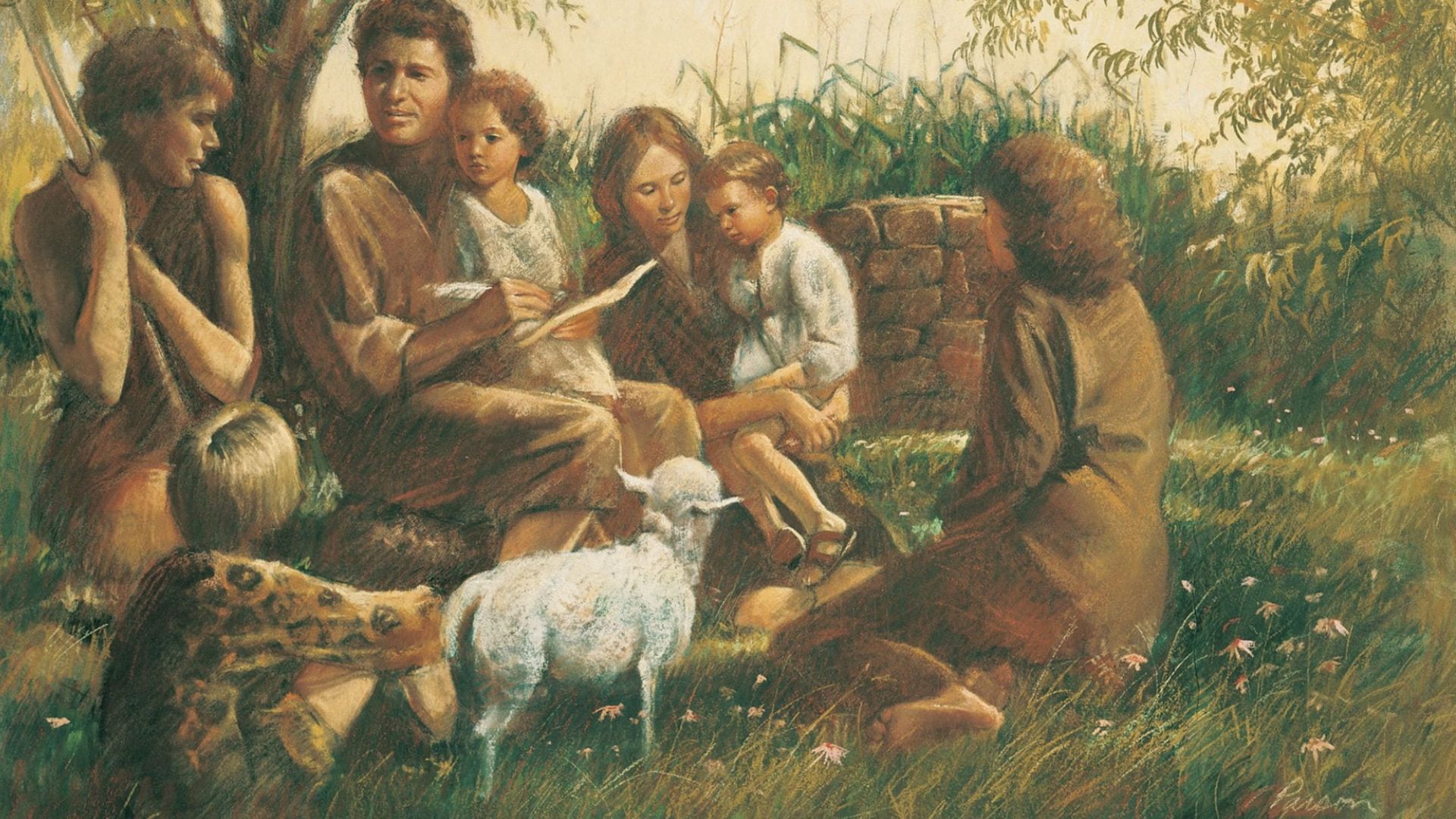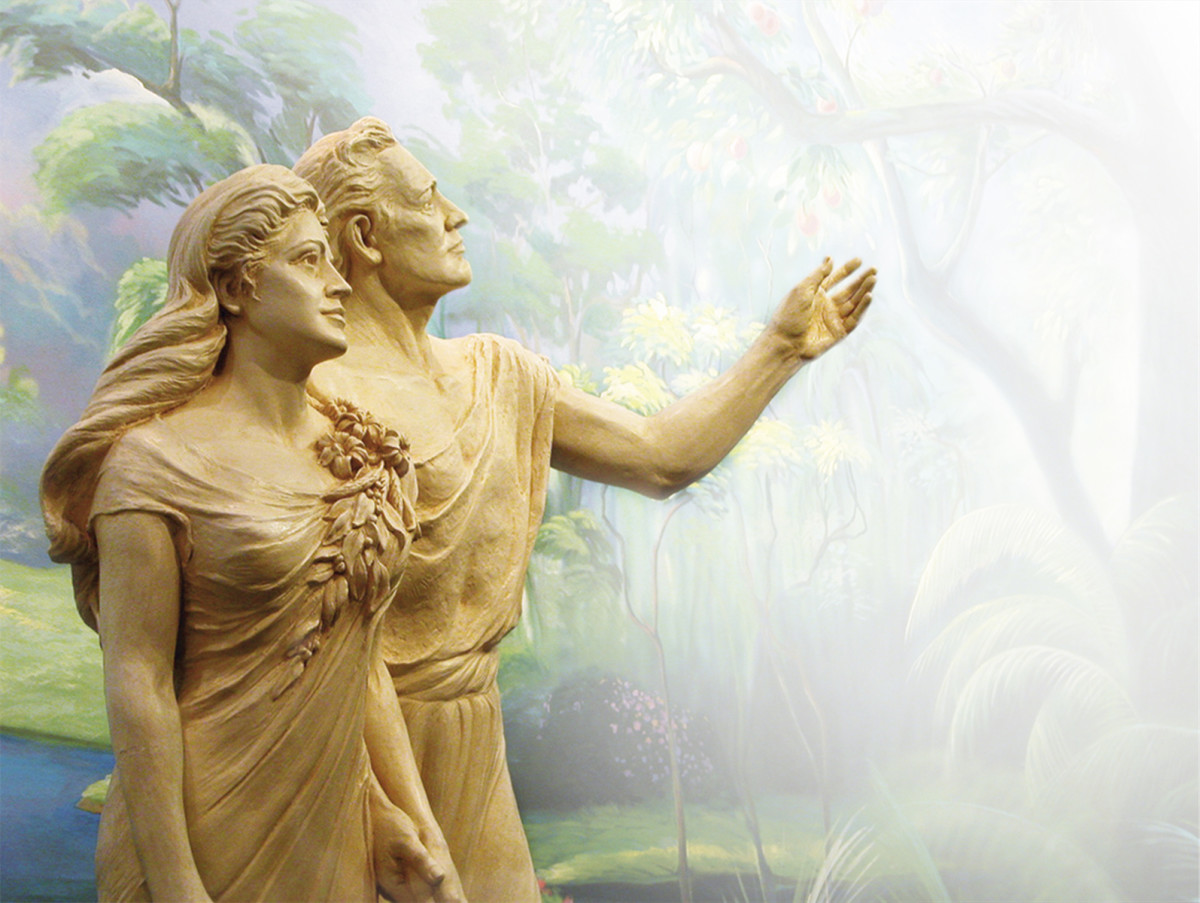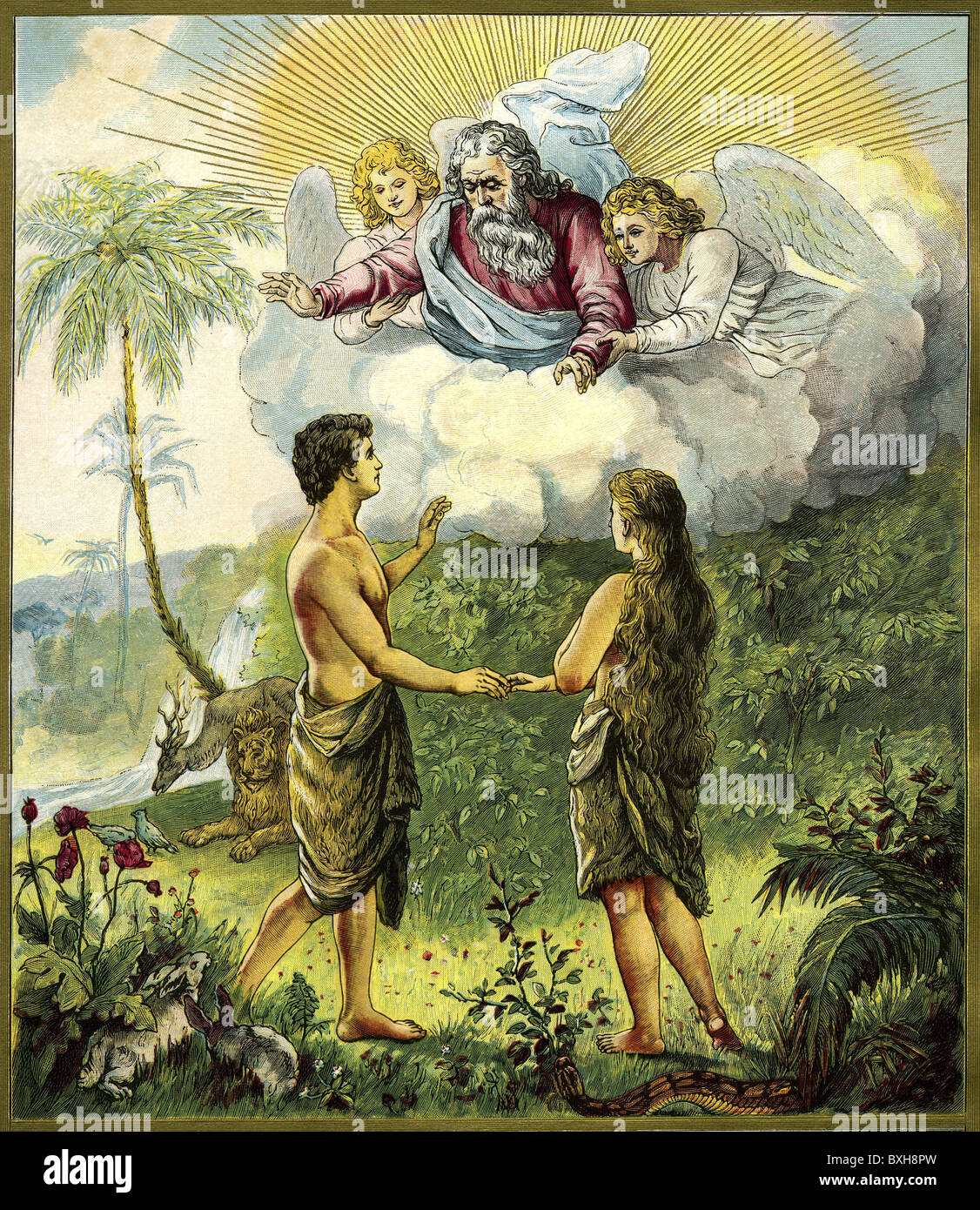Adam Dying - The Beginning Of Humanity's Story
It is, you know, a really old account, one that talks about the very start of everything, or at least, the start as we often hear it. This particular narrative, found in ancient writings, shares how a higher power brought the world into existence, along with all the living things within it. Interestingly enough, a specific word, "adam," shows up early on, and it has a double meaning. Sometimes, it just means "humankind" in a general sense, like all of us together, which is pretty cool when you think about it.
Then, a little later in the same old writings, that word "adam" takes on a slightly different feel. It points to a single person, a male human being, shaped by that higher power. So, you see, it's not just a simple label; it carries quite a bit of weight, sort of defining who we are at our very roots. This figure, as a matter of fact, holds a central spot in the grand tale of human beginnings, giving us a place to look back to, a starting point for our collective story.
For those who follow the ways of a particular spiritual path, this first human, this Adam, is seen as the very start of our family tree, the one from whom all of us have come. His experiences, his choices, and the consequences that followed, they actually set the stage for so much that came after. It's a tale that, in a way, speaks to our shared origins, our collective journey, and even the difficult choices we face. This narrative, you know, has a lot to say about where we come from and why things are the way they are, especially when we consider the idea of things like "adam dying" and what that truly means for everyone.
- Savannah Bachelorette
- Perez Maria
- Is Natalie Ryan Reynolds Daughter
- Lil Tay Net Worth 2025
- Pottery Barn Doormat
Table of Contents
- Who Was Adam - A First Look at Humanity's Start
- What Does Adam Mean - Beyond Just a Name?
- The Story of Adam and Eve - A Pivotal Moment for All
- What Are the Deep Meanings of Adam's Story for Us?
- Adam's Lasting Impact - How His Choices Shape Our World
- The Origin of Dying - What Does the Bible Say?
- Adam's Legacy - A Path Towards Hope
Who Was Adam - A First Look at Humanity's Start
When we think about the very first human being, the name Adam often comes to mind, especially if you're familiar with the old stories from sacred texts. He's presented, you know, as the initial person brought into existence by a higher power, shaped from the very ground itself. This account places him right at the heart of the earliest parts of the biblical narrative, particularly in the book of Genesis, which, really, lays out the foundations of many widely held beliefs. He is, essentially, seen as the one who started it all, the ancestor of everyone who has ever lived.
This individual, Adam, is not just a character in a book; he's viewed as the common source for all people, the one who gave rise to the entire human family. For many, his creation marks the beginning of our shared existence, a point from which all subsequent generations have sprung. It's a pretty big deal, actually, to be considered the father of every single person on Earth, making his tale, you know, incredibly important for anyone looking to understand human origins from a spiritual perspective.
Adam's Basic Information
| Role in Biblical Narrative | First human being, father of humankind, central figure in Genesis. |
| Creation | Formed by God from the ground. |
| Significance | Progenitor of all humanity, source of theological implications concerning humanity, sin, and redemption. |
| Key Relationships | Eve (first woman, partner in temptation). |
| Home | The Garden of Eden (paradise, later lost). |
What Does Adam Mean - Beyond Just a Name?
The word "Adam" itself carries a lot of weight, a bit more than just a simple personal identifier. In the very first book of the Bible, Genesis, it shows up in a couple of ways. Sometimes, like in the first chapter, it means "humankind" in general, referring to all people. This usage, you know, paints a broad picture of our collective identity. It suggests a shared essence, a common bond among all people, which is quite a profound thought if you really think about it.
- Hotel Ripa Roma
- Jeffrey Dean Morgan As Negan
- Kobe Wife Pregnant 2025
- Ill Be Loving You Always
- Christmas Trees Black Friday
Then, as the story continues into the second chapter of Genesis, the word "Adam" starts to point to a specific male person. This particular individual is the one who is shaped by the divine hand. So, it shifts from a general term for humanity to the name of the very first man. This subtle change in meaning, you see, is actually pretty significant, helping us to understand the different layers of the narrative. It’s almost like the term evolves as the story unfolds, giving us a fuller picture of what it means.
Across the entire Bible, the term "Adam" appears many, many times, nearly 500 instances, and most of those times, it refers to "mankind" as a whole. However, in Genesis, with just a few exceptions, when it talks about a specific person, it often includes a special grammatical marker, what's called a definite article. This little addition, which is like saying "the" in front of the word, really singles out "the man," making it clear that it's talking about that specific individual, not just humanity in general. It's a subtle linguistic detail, but it really helps to distinguish the different meanings, providing, you know, a clearer sense of who or what is being discussed.
How Did Adam's Actions Lead to Humanity's Dying Nature?
The story of Adam and Eve, their time in a perfect garden, and the choices they made, it's a tale that, in a way, explains a lot about our current state, including the reality of "adam dying" and all that comes with it. These first human beings, as the biblical account tells us, lived in a beautiful place, a paradise, but they faced a difficult test. They were, basically, told not to eat from a certain tree, a specific fruit. Yet, they were pulled towards doing the very thing they were told not to do, a moment of strong temptation that, you know, changed everything.
When they chose to eat that forbidden fruit, a new element entered the world: what is often called "sin." This act, this turning away from a clear instruction, had really big consequences. It meant that their perfect home, the Garden of Eden, was lost to them. This loss wasn't just about a place; it was about a change in their very existence, a shift from a state of pure harmony to one where imperfections, suffering, and ultimately, death became part of the picture. So, in a very real sense, their choice introduced the concept of "adam dying" to the human experience, making it a universal truth for all who followed.
This particular account, you know, serves as a timeless symbolic tale for all of humanity. It speaks to our beginnings, our shared origins, and the tough moral choices that we, as human beings, constantly encounter. It's not just an old story; it's a narrative that, in some respects, continues to speak to the human condition, helping us to think about the nature of our decisions and the lasting effects they can have. The idea of "adam dying" isn't just about one person's end; it's about how a fundamental change entered the fabric of life itself for everyone.
The Story of Adam and Eve - A Pivotal Moment for All
The account of Adam and Eve is, perhaps, one of the most widely known stories from ancient texts, and it really sets the stage for so much of what follows in the narrative of humanity. These two figures, presented as the very first human beings, found themselves in a truly special place, a garden that was, basically, perfect in every way. It was a place of abundance and harmony, where, it seems, everything they needed was provided. Their existence there was, you know, without want or worry, a pristine beginning for the human race.
However, this idyllic setting was also the location of a significant challenge, a moment that would, actually, alter the course of human history forever. They were faced with a choice, a specific instruction that they were to follow. The act of choosing to go against that instruction, to give in to a powerful pull towards something forbidden, brought about a fundamental change. This single event, a moment of temptation and decision, is presented as the point where a new reality entered the world, affecting not just them, but all who would come after them. It's a very pivotal moment, you know, in the grand scheme of things.
The outcome of their choice was, in a way, a turning point for all of humanity. Their perfect home, that wonderful garden, was no longer theirs to enjoy in the same way. This loss symbolizes a departure from a state of pure innocence and immediate connection with the divine. It's a powerful symbolic tale that, in some respects, speaks to the very origins of human nature, our capacity for choice, and the deep moral considerations that have shaped our journey ever since. It really helps us to understand, you know, the complexities of our own existence and the consequences that can flow from our actions, especially when we consider the broader implications of "adam dying" and what that means for our shared story.
What Are the Deep Meanings of Adam's Story for Us?
The account of Adam, his creation, his life, and the choices he made, carries some really profound spiritual and philosophical weight, especially when we consider the larger implications, like the idea of "adam dying." These elements are particularly important when we think about what it means to be human, the very nature of our existence, and the concepts of wrongdoing and being set right. It's a narrative that, you know, goes far beyond just a simple biography; it touches on universal themes that resonate with many people.
One of the most significant aspects is what it tells us about humanity itself. Adam is presented as the first, and through his experiences, we get a glimpse into the essential makeup of all people. It explores the idea of free will, the capacity to choose, and the consequences that naturally flow from those choices. This part of the story, you see, helps to frame our own understanding of our inherent qualities and our place in the world, giving us, in some respects, a foundational view of human nature.
Then there's the concept of sin, which, according to the story, enters the world through Adam's actions. This isn't just about a single mistake; it's about a fundamental shift in the relationship between humanity and the divine, leading to a brokenness that affects everything. And linked to this is the idea of redemption, a path towards being made whole again, towards overcoming the separation that resulted from that initial act. So, Adam's story, you know, isn't just about how things went wrong; it also points towards a way for things to be set right, offering a glimmer of hope even in the face of "adam dying" and its lasting impact.
Adam's Lasting Impact - How His Choices Shape Our World
The influence of Adam's story, particularly his choices and their outcomes, stretches far beyond the pages of ancient texts; it, basically, shapes how many people understand the very fabric of our existence. His life, as it's described, and the actions he took, have really deep spiritual implications. These implications touch upon some of the most fundamental questions we ask ourselves: what it means to be a person, where wrongdoing comes from, and how things can be made good again. It's a narrative that, you know, provides a framework for understanding many of the challenges and hopes we encounter in life.
His central spot in the biblical narrative, especially in the book of Genesis, means that his experiences are seen as foundational for the entire human story. He's considered the one who started it all, the ancestor from whom everyone else has come. This means that, in a way, his story is our story, a shared heritage that connects us all. It's almost like looking at the very first chapter of a very long book, a chapter that, you know, sets the tone for everything that follows.
The decisions Adam made, specifically the one involving the forbidden fruit, are presented as the reason that wrongdoing entered the world. This event, as a matter of fact, is often cited as the origin of many of the difficulties and imperfections we see around us. Yet, the story also hints at a path towards healing and restoration, suggesting that even though things went wrong, there's a possibility for them to be set right. This dual aspect of the story, the introduction of both trouble and hope, is, really, a powerful part of Adam's lasting impact, especially when we consider the profound reality of "adam dying" and its implications for all of us.
The Origin of Dying - What Does the Bible Say?
When people wonder about where the idea of "adam dying" comes from, or more broadly, the origin of death and wrongdoing in the world, ancient texts offer a particular perspective. One such text, the Wisdom of Solomon, shares a view that connects these significant concepts directly to the early human story. It's a way of looking at how life changed from a state of perfection to one where endings and difficulties became a part of the experience. This view, you know, provides a specific answer to a very old question.
The question of who was the first to do wrong, the first "sinner," is also addressed within these old accounts. To answer that, the focus often turns to Adam and Eve. Their choice to eat from the forbidden tree in the Garden of Eden is presented as the pivotal moment. This act, this turning away from a clear instruction, is seen as the entry point for wrongdoing into the human experience. It's, basically, the moment when things began to go differently than they were initially intended, leading to a cascade of consequences that, you know, affected all of humanity.
So, according to these narratives, the presence of wrongdoing and, by extension, the reality of "adam dying" and all that it entails for everyone, stems from that initial act in the garden. It's a powerful explanation for why life isn't always perfect and why endings are a part of our existence. The story suggests that while their perfect home was lost, there's also a promise of restoration, a hope that things can be made right again, even in the face of these profound changes. This framework, in some respects, gives meaning to our struggles and points towards a future beyond what we currently experience.
Adam's Legacy - A Path Towards Hope
Adam's story, as it unfolds in the ancient writings, is much more than just an account of the first man; it's a foundational narrative that, you know, sets the stage for a grander tale of humanity's journey. It begins with a perfect creation, a state of complete harmony, and then describes a pivotal choice that introduces a different reality into the world. This shift, which brings about wrongdoing and the concept of "adam dying," is, basically, a significant turning point, impacting all who came after him.
Yet, the legacy of Adam isn't just about loss or the introduction of difficulties. It's also, very importantly, a story that points towards hope and restoration. While the Garden of Eden was lost, and a state of innocence was altered, the narrative also suggests that this isn't the final chapter. There's an underlying theme that, you know, despite the changes and the challenges that came through Adam's choices, there is a way for things to be set right again, a path towards healing and a renewed connection.
This idea of redemption, of overcoming the brokenness that entered the world, is a central part of Adam's ongoing impact. His story, in a way, provides a framework for understanding not just where we came from, but also where we might be headed. It offers a vision of a future where the consequences of those initial choices can be addressed, and a state of harmony can, perhaps, be re-established. So, Adam's story, you see, continues to be a powerful reminder of both our origins and the enduring possibility of a brighter future, even as we reflect on the profound implications of "adam dying" and what that means for our shared human experience.
- Anne Hathaway Pixie Hairstyle
- Cast Of The Long Walk Home
- Water Out
- Steve Kerrs Son
- Christmas Gift Parents

Adam and Eve: 6 Responsibilities God Entrusted Them With

Adam & Eve: Oversee the Garden and the Earth | HubPages

List 102+ Pictures Adam And Eve Were They Black Or White Completed